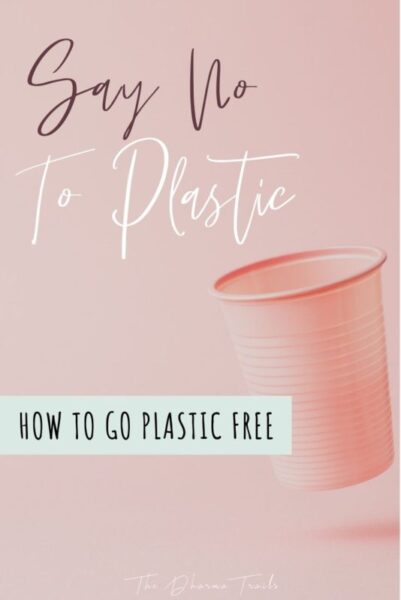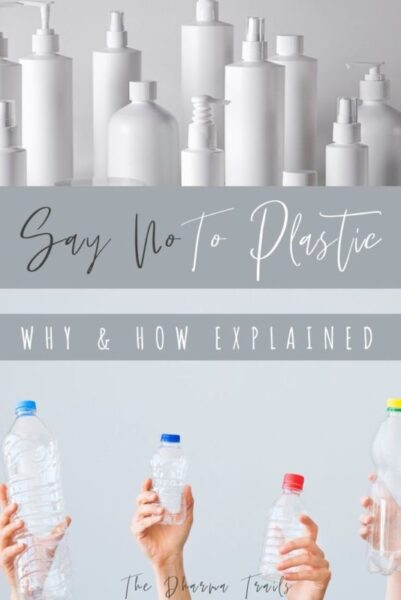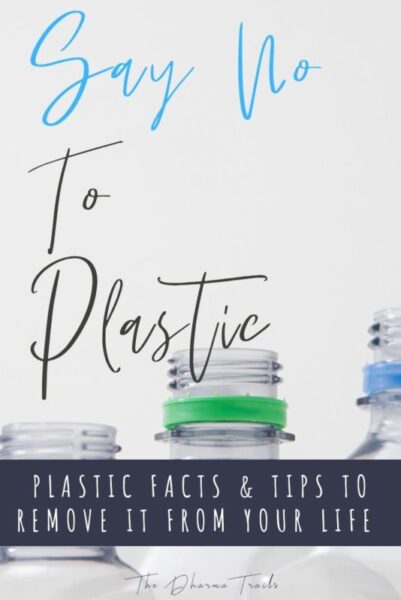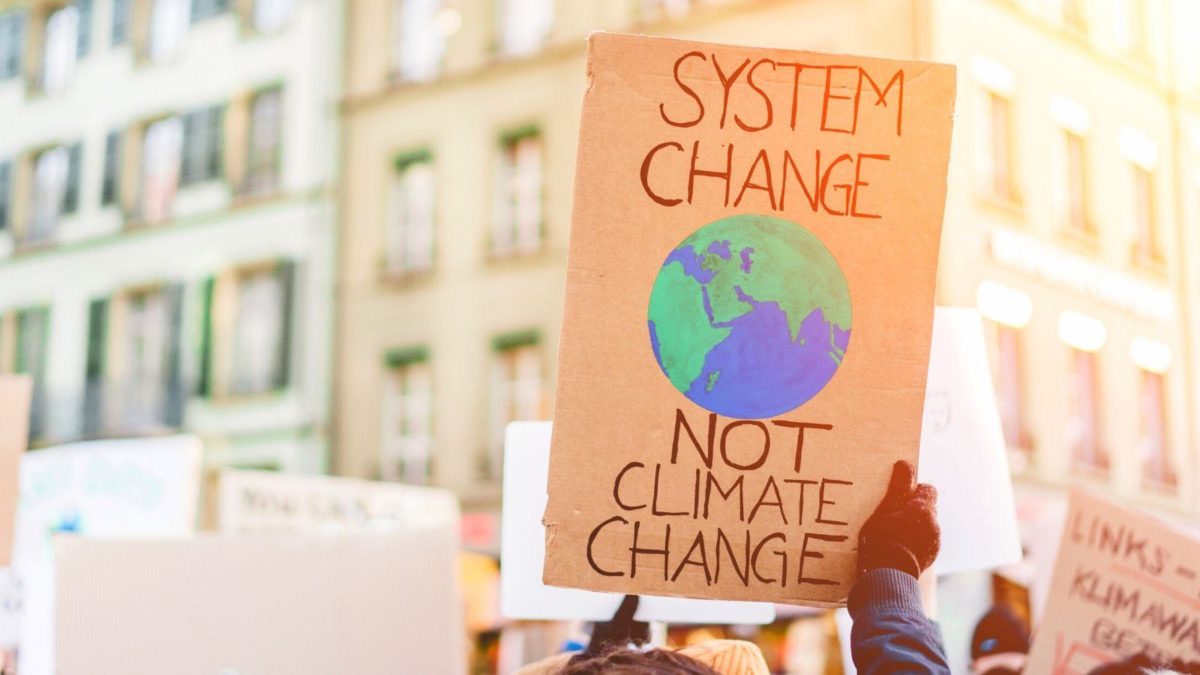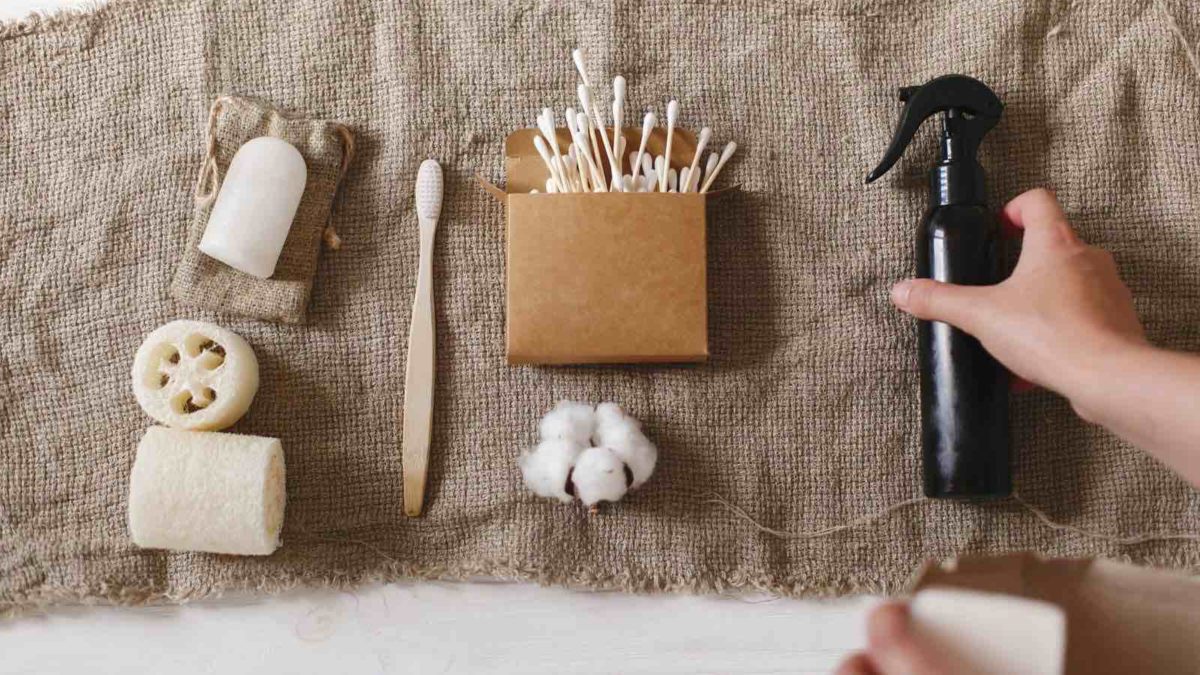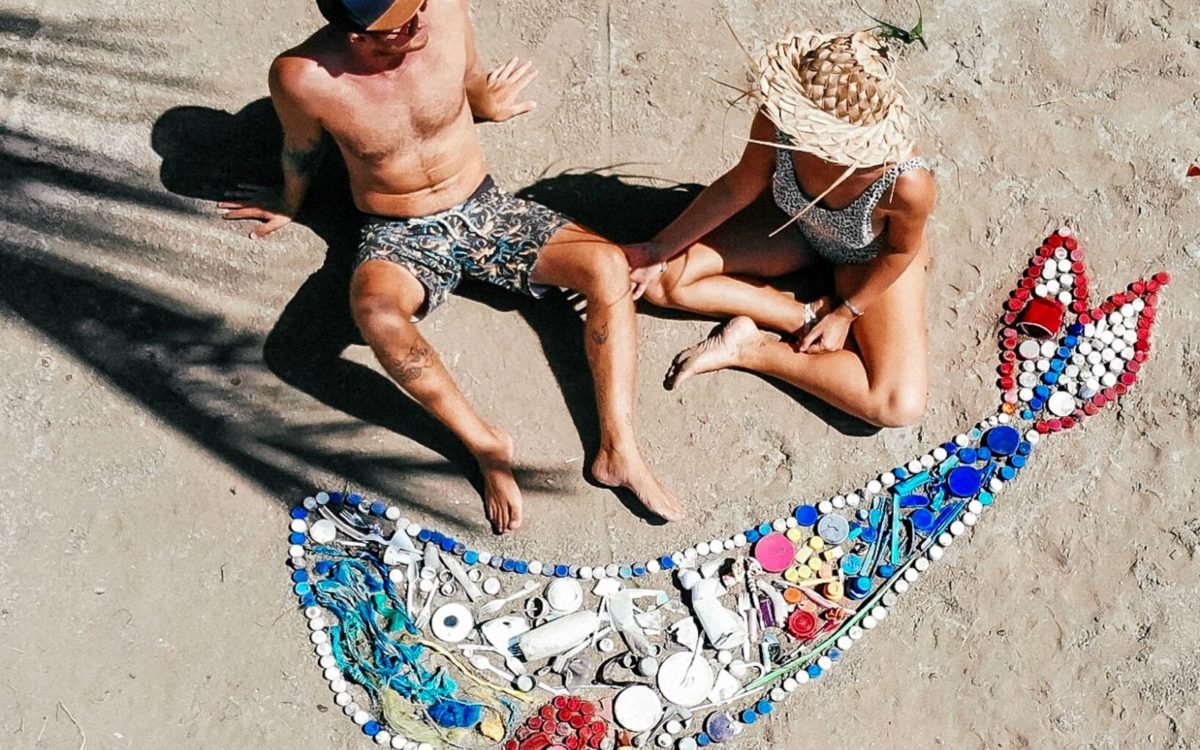Plastic pollution is a problem that the whole world is facing together. It’s more important than ever to say no to plastic. We are finding microplastic pieces in our waterways, in the food we eat, and in the water we drink. Collectively, we need to take action.
This post may contain affiliate links, which means I may earn a commission if you click a link and make a purchase. As an Amazon Associate, I earn from qualifying purchases.
Plastic waste does not degrade at a sustainable rate. The more we continue to make, the more waste continues to build up. When plastic waste is not disposed of properly, it ends up in the environment, which is causing devastating impacts. Each single-use plastic item we use today adds to the mass problem of tomorrow (and beyond).
But just how bad is it? And how can we reduce the issue? This article explains why we should and how we can say no to plastic, with great alternative options.
Table of Contents
Why should you say no to Plastic
New, shocking plastic-pollution facts are discovered every week. Whales and deer have been found dead from ingesting it. But it’s not only them. Birds, smaller marine mammals, and even humans have plastic inside their bodies. We are only now coming to the realization of just how huge a problem plastic pollution is.
Quick facts about plastic pollution:
- Plastic may take 1000 years to degrade. But it could be much longer. We do know that it can break into tiny microplastic pieces that enter the food chain.
- Up to 12.7 Million tonnes of plastic enter the ocean each year (equivalent weight of 12 Million Elephants)
- There will be more plastic in the ocean than fish by 2050 (This is based on total weight and fish stocks as per 2015 levels)
- 88–95% of this plastic entering the ocean comes from just 10 rivers around the world
- These huge volumes of plastic are accumulating with conjoining ocean currents to form floating “plastic patches”. The Great Pacific Garbage Patch is the largest one, being roughly three times the size of France.
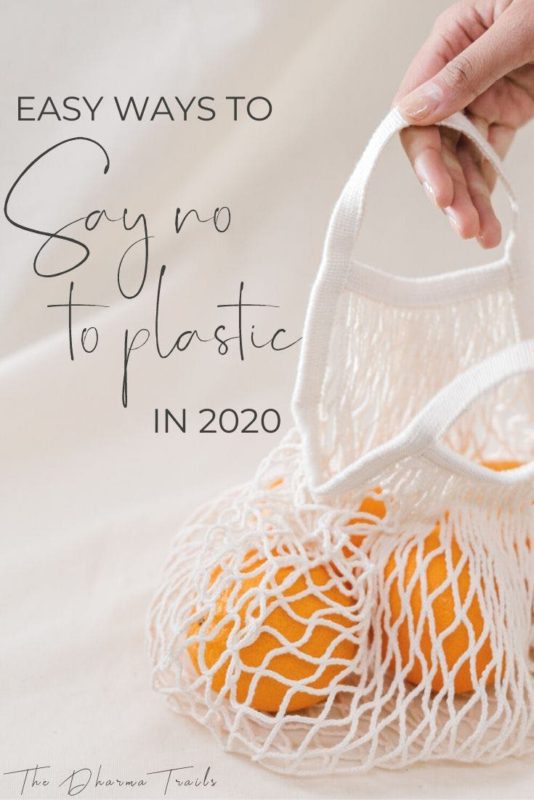
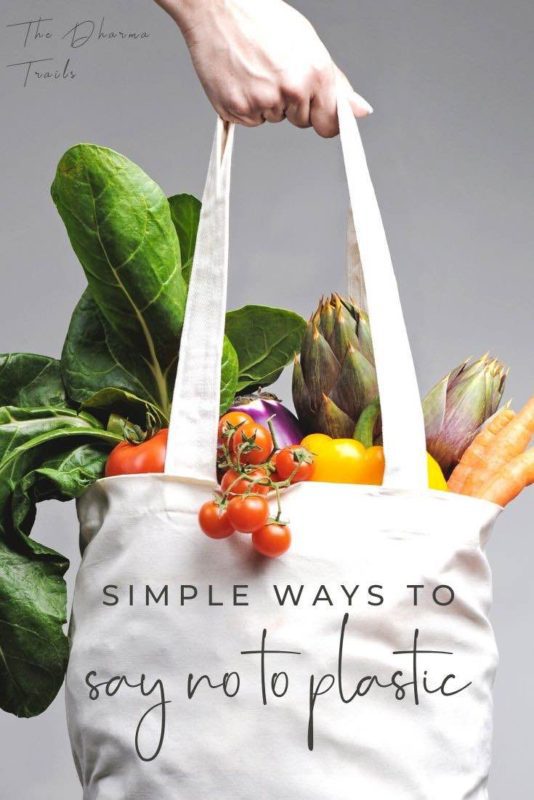
Why should I care about plastic pollution?
Apart from destroying the environment, it’s likely that plastic will end up killing us too if we are not careful. There has been a significant focus on microplastics in the ocean. However, microplastics can also be inhaled via dust. What does that mean for our health and wellbeing?
Recently, microplastic particles have been found in the placentas of unborn babies. This can’t be good. Plastic is a synthetic chemical compound, and in general, the ingestion of any chemicals into our system does not have a great outcome. A build-up of microplastics in our system could be toxic and result in negative immune system responses. However, more studies are required to understand the full complexity of the effects.
This begs to ask the question if there is a correlation between the invention and use of plastic food packaging on a mass scale and an increase in people’s immune-related illnesses.
Pollution from Plastic Bags
Plastic bags have been very useful since their inception in the 1960s. But, the time has come to say no to plastic bags. 2 Million Plastic Bags are used every minute around the world and up to 30 Million plastic bags enter the environment each year.
Plastic bags are easily displaced by wind and can travel large distances. Unfortunately, they often end up falling into sensitive natural areas. Even using mainstream garbage disposal techniques (curbside rubbish bins and designated landfills), plastic bags still manage to make their way into water sources and natural areas.
In the ocean, a floating plastic bag looks like a jellyfish (which is considered food by many different marine species). This is resulting in plastic consumption and ultimately prevents marine animals from digesting real food.
They can also get ripped apart during the sorting process at landfills. These ripped pieces are easily blown away from the site, which can lead to the death of land animals near landfills. These are just some of the many reasons why we must say no to plastic bags.

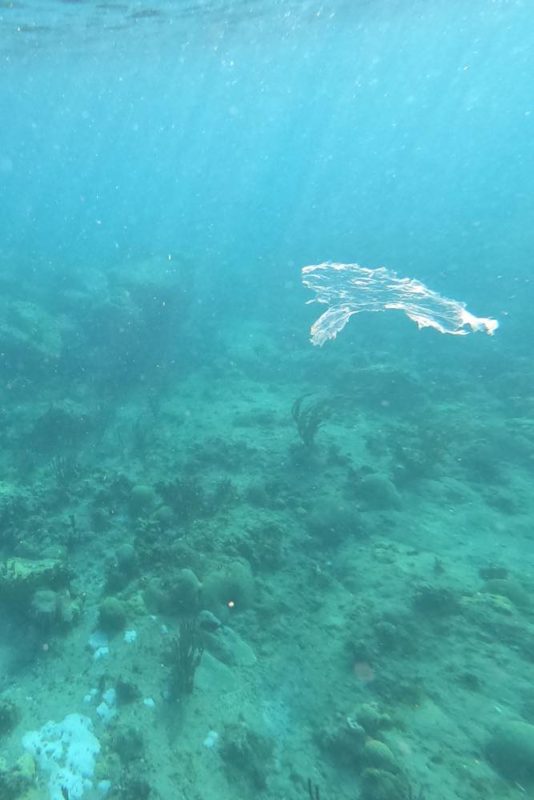
How to say no to plastic bags
If you’re shopping for anything more than a couple of items it’s likely you will need a bag. Whether you prefer a small, compact-sized bag or a large natural-looking basket this list of plastic bag alternatives has you covered.
- Mesh produce bags are great for packing your lose vegetables and fruits. They are lightweight and expand do fit produce in.
- Canvas bags are perfect for holding heavier and bulkier items such as cans, jars, glass bottles, and more.
Although plastic bags can be recycled, we should avoid adding new volumes into circulation.
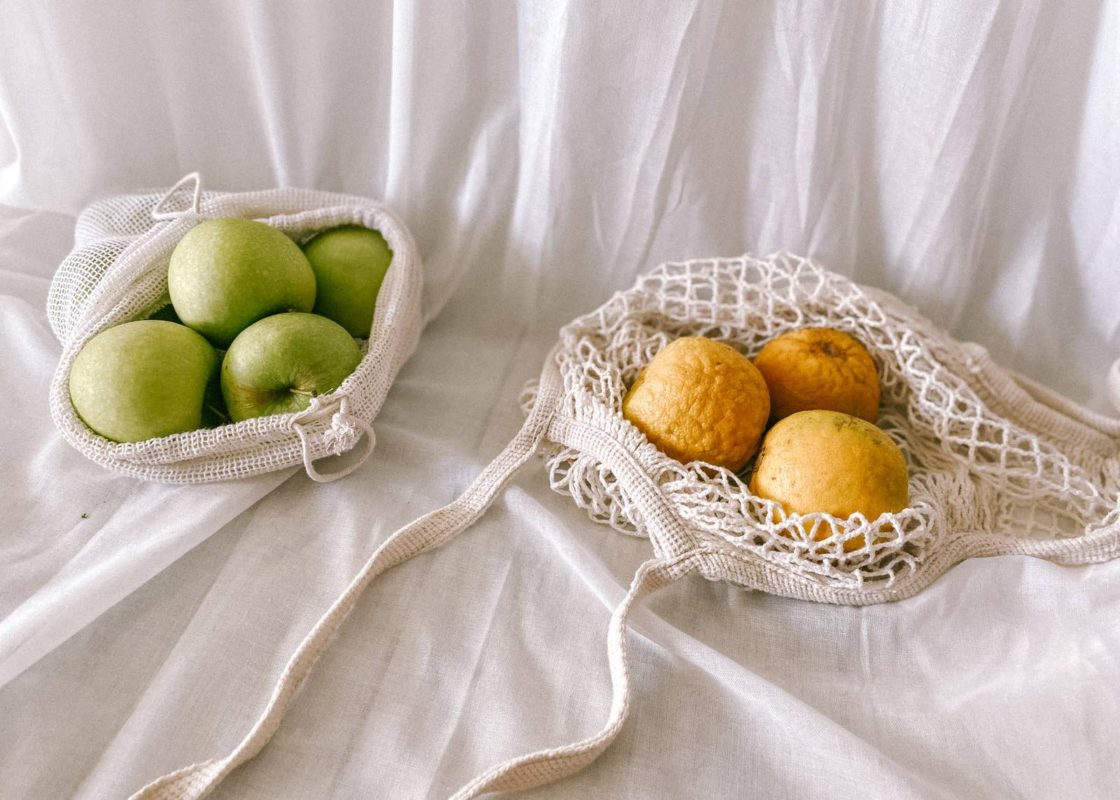
Pollution from Plastic Straws
Why say no to plastic straws? Plastic straws are one of the worst polluters “floating around”. Like plastic bags, their lightweight and durable design make the perfect combination for traveling long distances in the natural world.
500 million plastic straws are used per day in the United States alone, and they are not easy to recycle. They can also become brittle in the sun, which means that they can crack easily and split into tiny microplastics. Even when they don’t break down they can be a direct threat to marine life as they attempt to eat the floating straws.
Bonus Tip: Store plastic straws in a yogurt container or another number 5 container before putting them into the recycle bin.
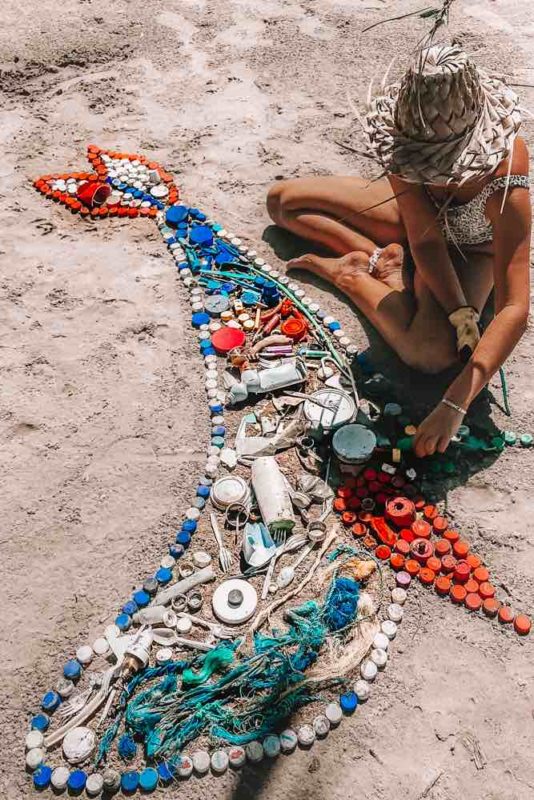
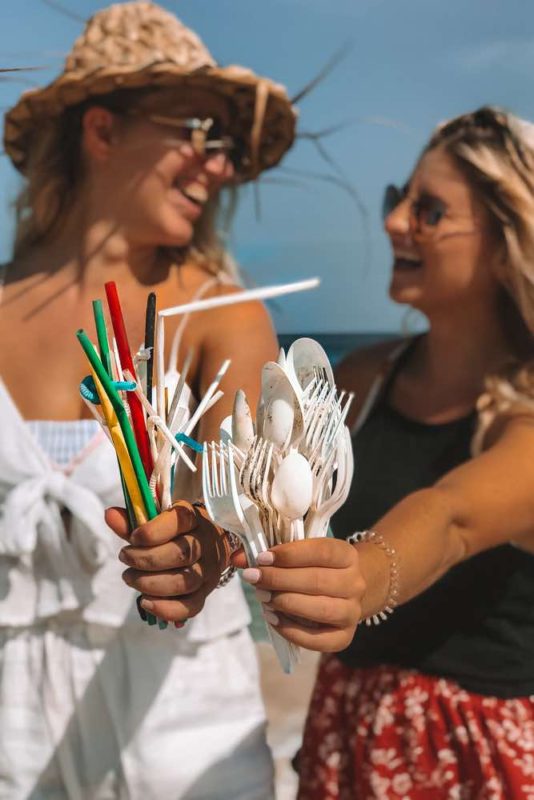
Alternatives to Plastic Straws
There are so many amazing plastic straw alternatives out there. Bringing your own straw is such an easy thing to do. They take up hardly any space and are very lightweight. There are four main types of reusable straws:
- Stainless Steel Straws – these come in different colours and are easy to clean
- Silicone Straws – these are great for kids as they are gentle on teeth
- Glass Straws – these look nice but can be damaged if you’re not careful
Pollution from Plastic Bottles
A huge number of plastic bottles are used around the world each day. With clean drinking water being one of the staples of life, there is a serious lack of it. Our “throw-away” mentality and some clever advertising from large bottled water production companies have resulted in a staggering number of plastic bottles being used every second around the world.
7.38 billion bottles of water are purchased every year in China (2016), and 1 million plastic bottles are bought every minute around the world. – The Guardian
Apart from being an environmental burden, drinking from plastic bottles is also a human health issue.
- Harmful chemicals, Antimony (Sb) and Bisphenol A (BPA) can leach into the water
- 11 major bottled water brands (internationally) were tested for microplastics. 93% of the bottles contained levels twice that of tap water.
While plastic bottles are a significant pollution issue, floating bottle caps also cause a serious threat to animal species as an enticing piece of potential food.
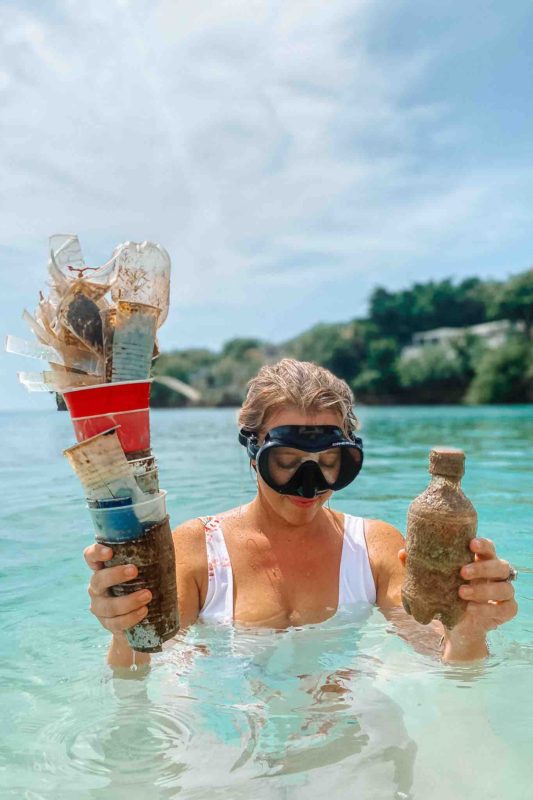
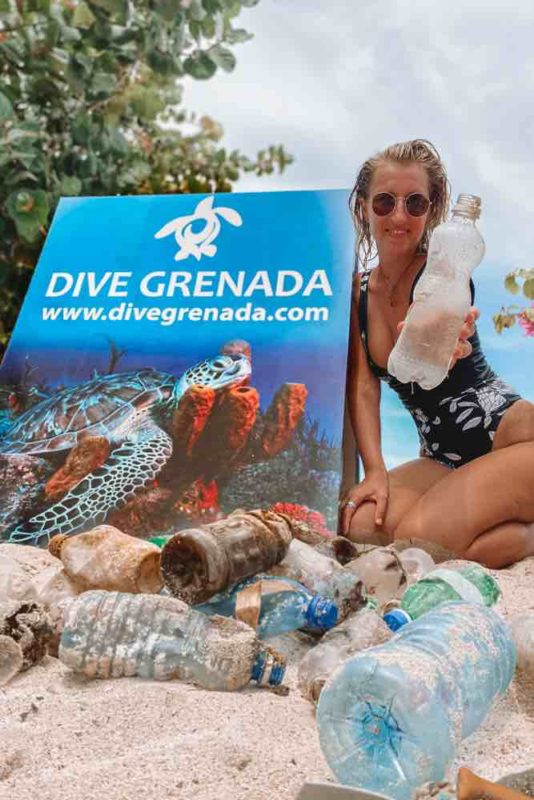
Alternatives to plastic bottles
There are several eco-friendly alternatives to plastic bottles that can significantly reduce environmental impact. Reusable water bottles made from stainless steel, glass, or BPA-free plastic are popular options, offering durability and the ability to keep beverages at desired temperatures for extended periods. Additionally, water filtration systems at home or water bottles with filters for on-the-go use can eliminate the need for bottled water by providing safe, clean drinking water from any tap.
Pollution from Plastic Cups
There are so many bars out there still pouring drinks into plastic cups. This usually happens at bars where you can walk onto a beach or by a pool (as the establishments don’t want glasses or bottles to break in these areas).
Each night hundreds of plastic cups can be used at a single venue. Some cups are labeled as “biodegradable”. The reality is that they are still encouraging “the single-use mentality” and may only biodegrade in specific conditions at specialized, industrial sites.
The cups will have to be first collected, cleaned, and taken to these industrial compostable locations. It’s likely that many beach bars are simply not doing this process. Therefore, the ‘biodegradable’ cups are simply adding to the ever-growing waste pile we call “landfill”.
Alternatives to Plastic Cups
There are many plastic cup alternatives on the market, and below are some of our favorites:
- Insulated cups can keep your drinks hot or cold for hours on end. Although they can be a little bulky in your bag, they are a great investment and last for years.
- Collapsible cups are a great option if you are traveling abroad or limited on space. They fold up to fit in your pocket and are made from food-grade silicone.
Pollution from Plastic Containers and Cutlery
Takeaway containers are often made from “Styrofoam”. This is polystyrene plastic with added air (about 95% air). This added air makes styrofoam one of the best artificial floating materials out there. Its lightweight design makes it perfect for traveling long distances in the wind and water.
- Styrofoam cannot be recycled. It will continue to pile up as waste.
- Styrene is classified as a carcinogen to humans according to the National Research Council – A study by the EPA detected Styrene in human tissue and breast milk samples.
Styrofoam is not only terrible for the environment, but it is harmful to your health. Plastic cutlery becomes weak under UV conditions and breaks up into tiny pieces (microplastics) that are entering the food chain in the sea.
Plastic Alternatives For Food Storage
Food storage is about human health. Plastic has been used for a long time. However, there are new (and old) technologies available to switch to.
- Silicone bags are reusable, and make a perfect plastic alternative. They can be frozen, or microwaved, and do not absorb any food smell or taste.
- Beeswax wraps are a great alternative to cling wrap. It’s made from organic cotton and beeswax to create a fabric that can be used to cover food. They can be washed with cold soapy water and air-dried.
- Glass containers are easy to clean and stack. Or you can use whatever you have. While it might not look as neat as a matching set of glass containers, you can wash out and use old jars, or boxes to store food instead of buying new ones.
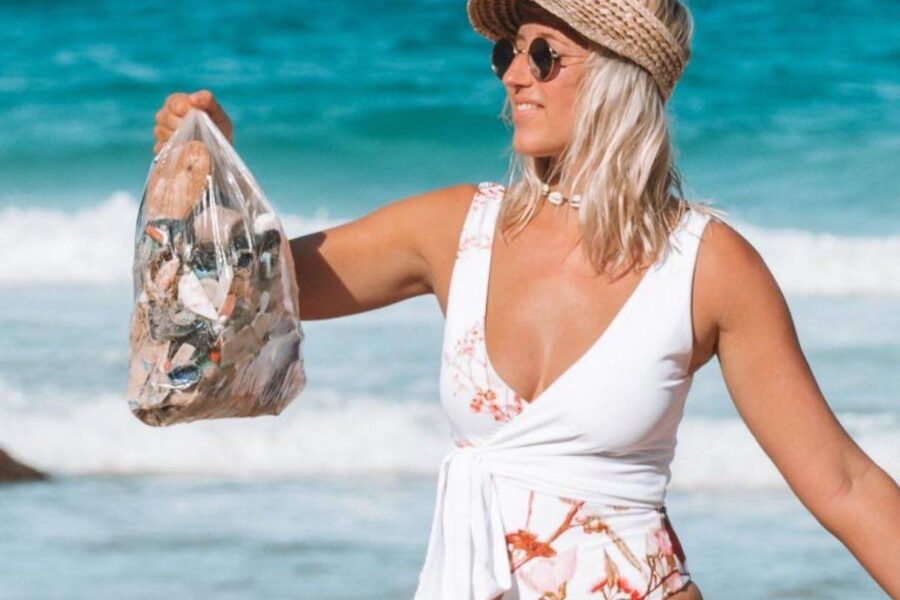
The 7 R’s of Sustainability
Here are some important questions to ask yourself before making your next purchase:
- Rethink – is the product really needed
- Refuse – say no to single use plastic and items that are not recyclable or reusable
- Reduce – limit the number of ‘single-use’ items that you buy
- Repurpose – try upcycling your plastic
- Reuse – clean the plastic and use it again
- Recycle – learn how to recycle plastic correctly
- Remove – if you see some trash in the environment, do a little cleanup. Every bit counts!
How to Say No to Plastic in your Kitchen
We all have plastic in our homes in some form or another. However, it’s not too late to change. In fact, it’s easy to change and learn how to avoid plastic in our daily life. We’ve highlighted ways in which you can transition various areas of your home into plastic-free zones.
Plastic plays a huge role in the kitchen, especially food storage. For many of us, it starts even before the food enters your home. You will often find vegetables, grains, pasta, snacks, and more all packaged in plastic. But there are some simple ways to go zero waste in the kitchen.
There are two main areas of plastic use in the kitchen:
- Food Storage
- Garbage/ Trash Bins
How to avoid Plastic in your Garbage Bins
Most people assume that by putting your trash into a plastic bag you are containing it. You might think that you are helping by having garbage contained in a bag.
But these bags end up in landfills, which are expansive areas of trash that have to be pushed and moved around by large machines. These often break up the bags anyway. Broken pieces of plastic bags are blown away easily and can end up in waterways or natural locations where they shouldn’t be.
You don’t need to have a plastic bag liner in your garbage bin. It might be easier to clean, but using bags every day for your waste is adding to the significant plastic pollution problem faced around the world. Luckily, there are some great ways to avoid plastic bags for your garbage bins.
If you don’t want to handwash your bin, then reusable bin liners are a good idea. These K.A.N Bags are reusable, waterproof, and machine washable.
How to compost your food waste
There’s really two main kinds of waste in your kitchen:
- Food Waste/Organics
- Others
By composting your organics, you can significantly reduce your waste footprint. It also reduces the amount of greenhouse gas emissions released from landfills. The issue with food waste is that it makes a mess, rots, and creates interest for ants and other insects. However there are a couple of easy ways to avoid this::
- Place food scraps into a bowl and store them in your fridge until it is collection day for your curbside bin. The fridge will keep them cool so they do not smell
- Use a Kitchen Counter Compost Bin to store scraps until curbside collection day. They have charcoal filter lids to prevent smell.
- Place scraps directly into an outdoor compost. If you don’t have one at home you can take scraps to a local compost or farm
Kitchen counter compost bins are great to reduce food waste. Separating your organics means that you are less likely to require a plastic bag liner for your bin. This electric compost bin converts your food waste into fertilizer in hours.
How To Make Your Bathroom Plastic Free
There are more eco friendly toiletries on the shelves than ever before. This is great because they are generally using fewer/no chemicals compared to traditional bathroom products. This is not only better for us, the consumers, but also the environment.
There is, however, still the issue of packaging. It is very good to have a natural, organic product to use on your skin, however, when it comes packaged in plastic, it is not good for the environment.
There are more and more companies switching to more environmentally friendly packaging such as cardboard, glass, and metal jars, avoiding use of plastic. You can find zero waste toothpaste brands, zero waste shampoo, and more. There are also more zero waste shops with refillable containers for your soaps and cleaning products.
- Shampoo bars are great for travelling and you can avoid plastic bottles in your shower!
- If you use a regular toothbrush, why not make the switch to bamboo toothbrushes. The handles are biodegradable, meaning you can say no to plastic in your bathroom!
- Safety razors are another great switch for the bathroom. They don’t use any plastic like regular razors do, and they provide a really close shave.
- One person will use approximately 11,000 disposable pads and/or tampons in their lifetime. Say no to period waste by switching to a menstrual cup, or other reusable alternatives like menstrual underwear.
Books on plastic pollution
- Thicker than water: Erican Cirino travels the globe to meet scientists and activists who explain the real effects of the plastic crisis. Erica explores ways to enhance system change in this short but to-the-point insightful book that will inspire you to stay no to pollution.
- 101 Ways to Go Zero Waste: Kathryn Kellogg has been at the forefront of the Zero Waste Movement the last few years and has developed a series of ways that we can make better choices across a range of activities. This book is sure to get you on the right track to a plastic free life.
- Give a Sh*t: Do Good. Live Better. Save the Planet: A perfect blend of humour and education makes this audiobook a great listen for anyone looking to make real, positive changes in their life for a sustainable future.
- Plastic-free: How I Kicked the Plastic Habit and How You Can Too: This real-life journey follows Beth Terry as she explores a variety of ways to change for the better without having to ‘eco-guilt’ yourself along the way.
How to Say No to Plastic when Travelling
Eco Travel is about minimizing your environmental impact as you see the world. Changing the way you travel can be easy. Choosing where you stay and packing the right gear makes it easy to avoid single-use plastics and reduce waste.
When traveling, we say no to plastic by packing these eco friendly travel products in our backpack:
- Reusable Waterbottle
- Stasher silicone bags
- Reusable cup
- Travel Cutlery
- Beeswax wraps
- Reusable container
- Cotton mesh bags
- Eco friendly toiletries
The Future of Plastic
We don’t want any more single-use plastic in circulation. Its negative effects on our environment are detrimental to the longevity of our planet. Luckily, there are some amazing new alternative technologies out there.
Here are some new plastic material alternatives. They are still in the development stages, though are showing positive signs for the near future.
Casava “Plastic”
- Cassava is a type of root vegetable.
- Companies are making bags that use Cassava as their base ingredient (as opposed to petroleum in standard bags).
Cellulose “Plastic”
- Cellulose is an organic compound found within the cell walls of plants and algae.
- VTT Technical Research Centre of Finland has developed a packaging suitable for food storage that is completely biodegradable. It looks and feels like plastic, but it’s not.
How do we eliminate plastic in circulation?
The answer could be mushrooms. The Fungi Mutarium (Utrecht University) is working with a mushroom that can actually break down plastic. This could work in landfills, however, the plastic that is roaming our seas or sitting in natural spaces will need to be physically removed.
Companies like 4Ocean are doing large-scale ocean and beach clean-ups. You can help contribute to the cause by buying their bracelets online (made from recycled ocean plastic) or buying them as an eco friendly gift for your friends.
Alternatively, you can do cleanups wherever you are. Ideally, you would take it to a recycling center. If that’s not possible, place your collected trash into bins with lids so it will not blow away again.
Keep saying no
Look at your household items, from Christmas wrapping paper to kitchen items, it’s important to choose sustainable options. Alongside this, we need to be mindful of what our products are made from and avoid palm oil products.
Say No to Plastic Slogans
Here’s hoping that the plastic facts and figures above were enough to convince you that things seriously need to change. We don’t want to see news stories around the world highlight more plastic-filled animals (and humans). We need alternatives. Anti-plastic slogans can be a great way to build awareness about the need to say no to plastic. We’ve seen the power of save water and save earth slogans in creating awareness of the climate crisis. Here are a few say no to plastic posters and slogans to get you started:
- Do something drastic, and say no to plastic
- Keep the earth clean, say no to plastic
- Soon there won’t be shells, only microplastics to collect
- We have a solution, stop plastic pollution
- If you can’t reuse it, refuse it!
- Go green and keep the earth clean
- Plastic waste does not degrade at a sustainable rate
– The Dharma Trails
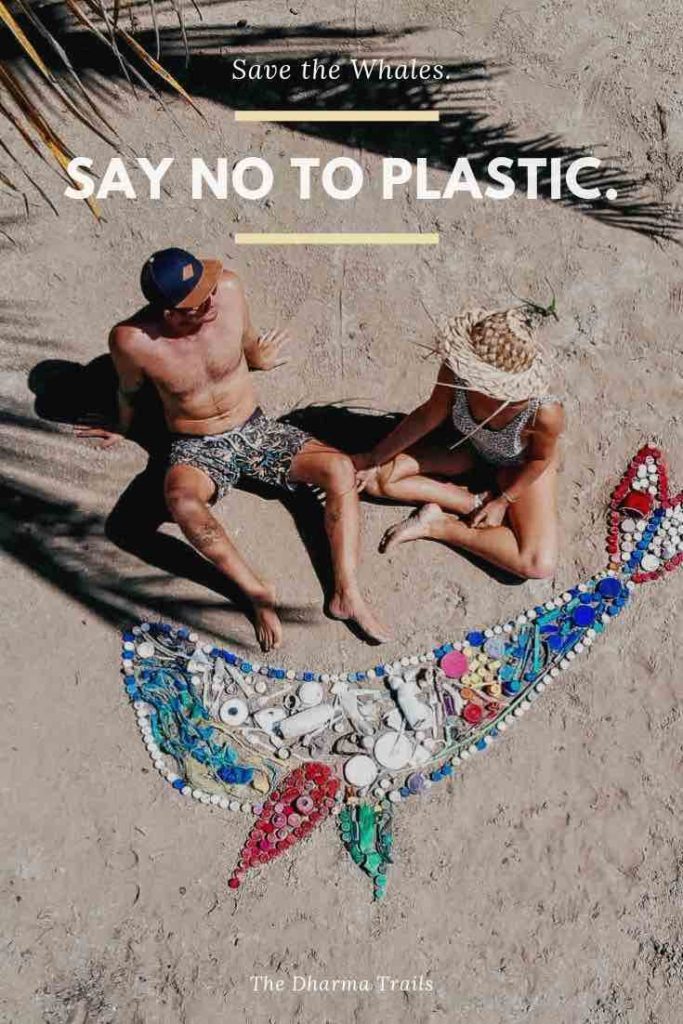
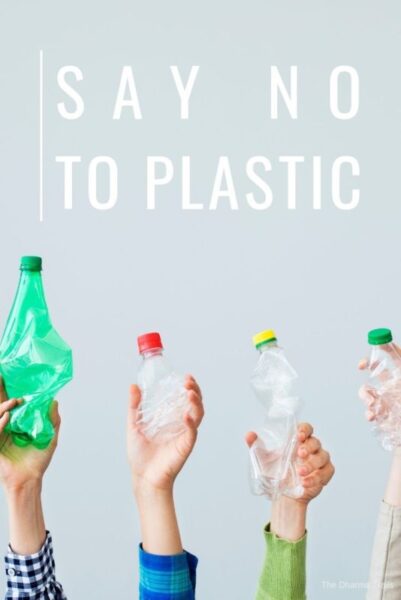
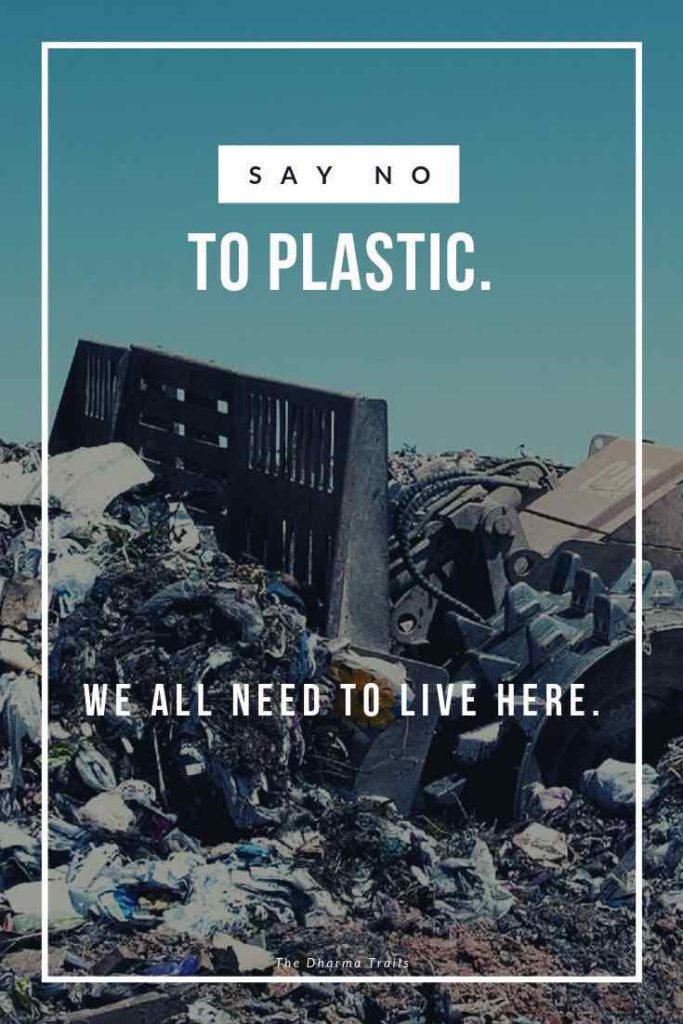
Whether you’re at home, out in the world, have a busy life or have political views that nobody else agrees with, we ALL need to say no to plastic. Luckily, there are some amazing alternatives out there that you can switch to today.
FAQ
What are the points of saying no to plastic?
Saying no to plastic reduces environmental pollution, conserves natural resources, and protects marine and wildlife. It also decreases our carbon footprint and encourages the development and use of sustainable materials. This shift promotes a healthier planet and a more sustainable future for generations to come.
Why shouldn’t we have plastic?
Plastic pollution causes severe environmental damage, takes centuries to decompose, and harms wildlife. Plastics also release toxic chemicals during production and breakdown, contributing to pollution and health issues. Reducing plastic use promotes a cleaner, healthier environment and a more sustainable way of life.
Is plastic harmful yes or no?
Yes, plastic is harmful. It pollutes ecosystems, endangers wildlife, and releases toxic chemicals. Its production and disposal contribute significantly to environmental degradation and climate change, posing serious threats to both nature and human health.
Why is plastic being banned?
Single-use plastic is being banned to reduce environmental pollution and protect wildlife. These plastics often end up in oceans and landfills, where they take centuries to decompose, releasing harmful chemicals. Banning them encourages the use of sustainable alternatives, decreases plastic waste, and promotes a healthier, cleaner planet for future generations. Countries and cities leading this movement include Canada, which prohibited six types of single-use plastics, and Kenya, which has implemented one of the world’s strictest plastic bag bans.
Like This Article about saying no to plastic? Pin it!
